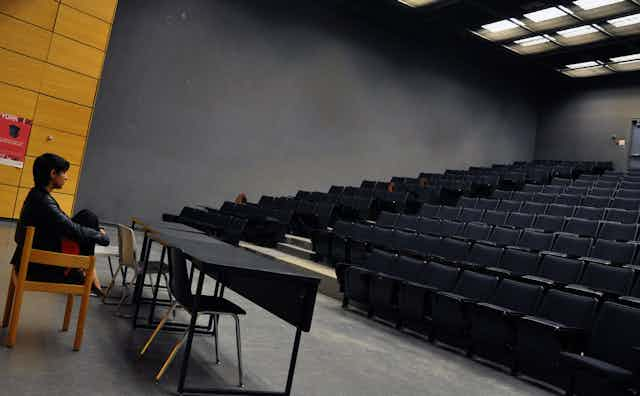Earlier this year, I visited the library at the Australian National University with my son so he could borrow some books for an essay on Chinese history. Wandering past shelf after shelf, he asked me, “How does it feel to be writing another book that no-one will read?”
It was just another teenage jibe, but in policy terms it was a prescient analysis.
In recent weeks there have been reports that the government is considering making publication output much less important in the formulae that allocate research funding to universities.
Prime Minister Turnbull has signalled a desire to move away from a “publish or perish” culture to a new set of academic incentives that prioritises engagement and impact.
With more than A$1 billion per year in research grants on the table, even a marginal change in allocation methods could see big changes in the dollars flowing to some fields of study.
There is real concern among some academics that the changes will be unfair: scientists will be able to demonstrate impact in the form of patents, commercial spin-offs and industry engagement much more readily than their colleagues in the social sciences or humanities.
When the new Chief Scientist, Alan Finkel, talks about the importance of demonstrating “a measurable return on investment,” historians, anthropologists, philosophers and linguists are understandably anxious.
But is a defensive reaction necessary?
Change on the way
Those of us who work in the social sciences and humanities place a great value on the persuasiveness of our words. We can write; not perfectly, but better than most. New and genuinely public forms of publication, rather than the semi-private domain of journals and monographs, provide us with powerful platforms for our academic passions.
We don’t need to be afraid of funding formulae that focus on the quality of societal engagement rather than the quantity of journal articles or monographs.
But it will take a change of attitude and of academic practice.
If we continue to shape our careers around the twice-weekly lecture (to a diminishing class of students) and two journal articles per year (in good quality journals, so our peers can praise them without reading them) our future will be much narrower than it could be.
Academic websites would be a good place for reform to start. Most departmental webpages are online ghost towns, attracting negligible traffic despite the effort and angst put into producing and, intermittently, maintaining them. They do very little to generate broader societal impact via outreach or engagement.
Rather, they exist primarily to reassure academic units of their own existence. They are like sacred totemic objects that symbolise the unity of the academic clan – they are brought out from seclusion in times of social crisis (such as a managerial attempt to rationalise unread online content), briefly venerated, and then forgotten. And one of the ironies of university life is that the managers of websites regularly complain that they struggle to receive content.
Effective engagement and outreach will require a much more nimble academic posture. We need to diversify the way we write. It’s time to stop looking down our nose at public commentary as a second rate form of academic communication. We can rediscover the power of images and sounds.
An ability to operate effectively in the online world should gradually become a baseline academic selection criteria; just as important as the ability to give a lecture or write a chapter.
Rising to the challenge
In no way should this diminish the importance of basic, speculative and even eccentric research. I am an anthropologist and, as my son kindly pointed out, I know what it’s like to write books and articles that don’t exactly fly off the shelves. But I have spent the past decade combining formal promotion-friendly publication with blogging, opinion pieces and media interviews.
The ideas, inspiration and energy flow two ways: from formal research to public outreach and back again. Some of my research has been rather esoteric (spirit beliefs in northern Thailand, anyone?) but I have always enjoyed using insights from that work in public discussions about power, politics and democracy.
Have I been able to demonstrate, or even measure, the impact of my public outreach? To some extent, but certainly not perfectly. Working on this will be challenging and, at times, frustrating.
But engaging in the debate will be more productive than retreating behind a “nobody understands our worth” barricade. There are many qualitative and quantitative tools that we can use to demonstrate our engagement and impact. It will seem like sacrilege to many, but perhaps re-tweets could become an academic metric that sits alongside citation rates?
The challenge laid down by the government is not to abandon pure research or scholarly writing, but to put the public back into publication.
It’s a challenge we should embrace.

